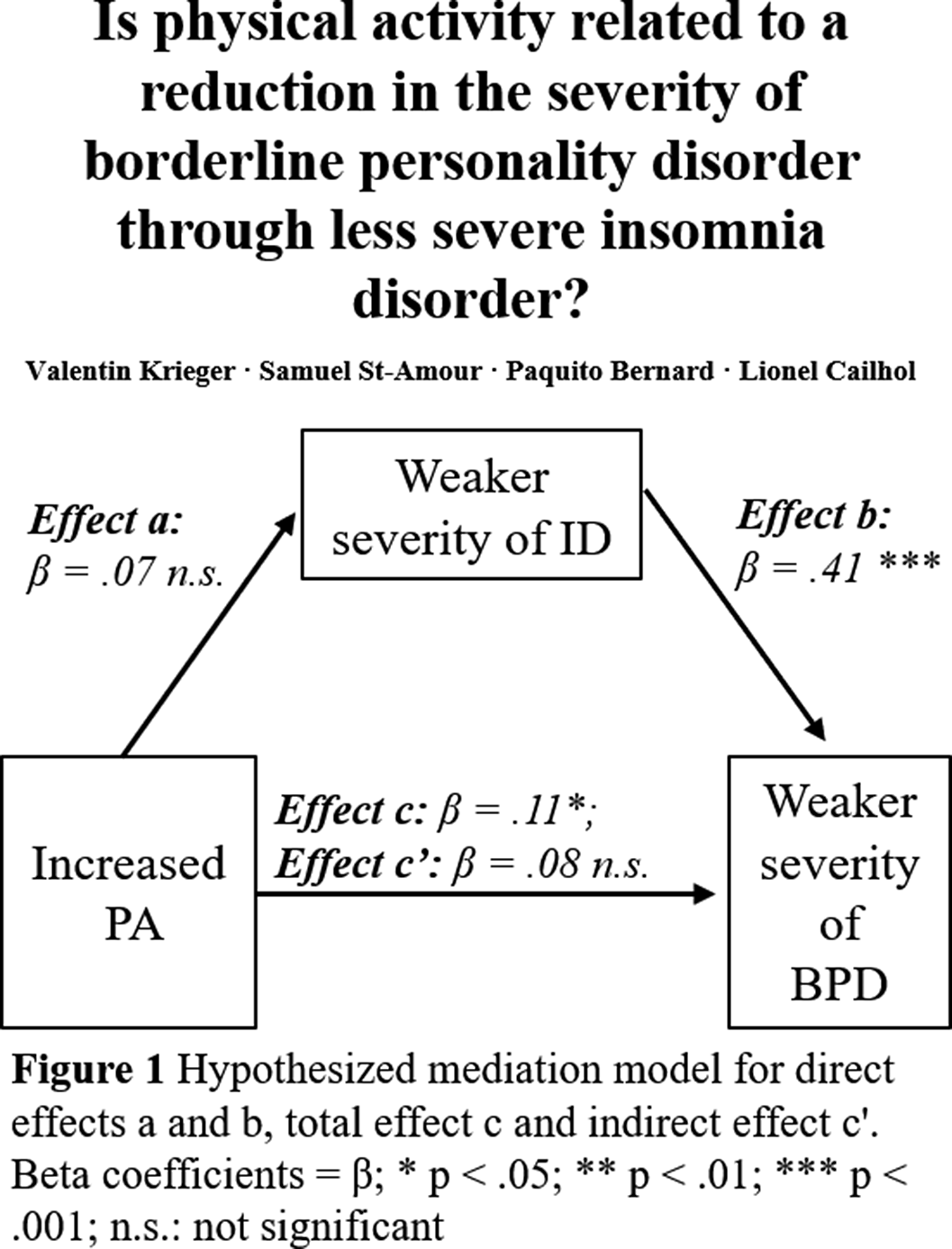No CrossRef data available.
Published online by Cambridge University Press: 19 July 2023
Borderline personality disorder (BPD) is associated with severe suffering and insomnia disorder (ID) (Fertuck et al., 2016; Galbiati et al., 2020).
The aim was to investigate the negative association between self-reported physical activity (PA) and the severity of BPD with ID acting as a mediator (St-Amour et al., 2021).
The role of ID within the association of PA with BPD was tested using mediation analysis with the statistical program R 4.3 (N = 120; RStudio Team, 2020).
Table 1
Mediation analysis results
| β | se | t | p | LLCI | ULCI | |
|---|---|---|---|---|---|---|
| Effect a | 0.07 | 0.05 | 1.46 | 0.15 | -0.03 | 0.17 |
| Effect b | 0.41 | 0.09 | 4.60 | < 0.001 | 0.23 | 0.59 |
| Effect c | 0.11 | 0.05 | 2.16 | 0.03 | 0.01 | 0.21 |
| Effect c’ | 0.08 | 0.05 | 1.70 | 0.09 | -0.01 | 0.17 |
Note: β = beta coefficients; se = standard error; t = t-value; p = p-value; LLCI = lower limit confidence interval; ULCI = upper limit confidence interval. Effect c’: The association within the mediation analysis is not significant (β = 0.08, se = 0.05, p = 0.09). Effect a: PA is not significantly associated with ID (β = 0.07, se = 0.05, p = 0.15). Effect b and c: ID (β = 0.41, se = 0.09, p < 0.001) and PA (β = 0.11, se = 0.05, p = 0.03) are significantly associated with the severity of BPD.
Image:

Accordingly, ID does not appear to affect the association of PA and BPD severity whereas fewer PA and severe ID can nonetheless have a positive association with the symptoms of BPD in independent ways.
None Declared
Comments
No Comments have been published for this article.